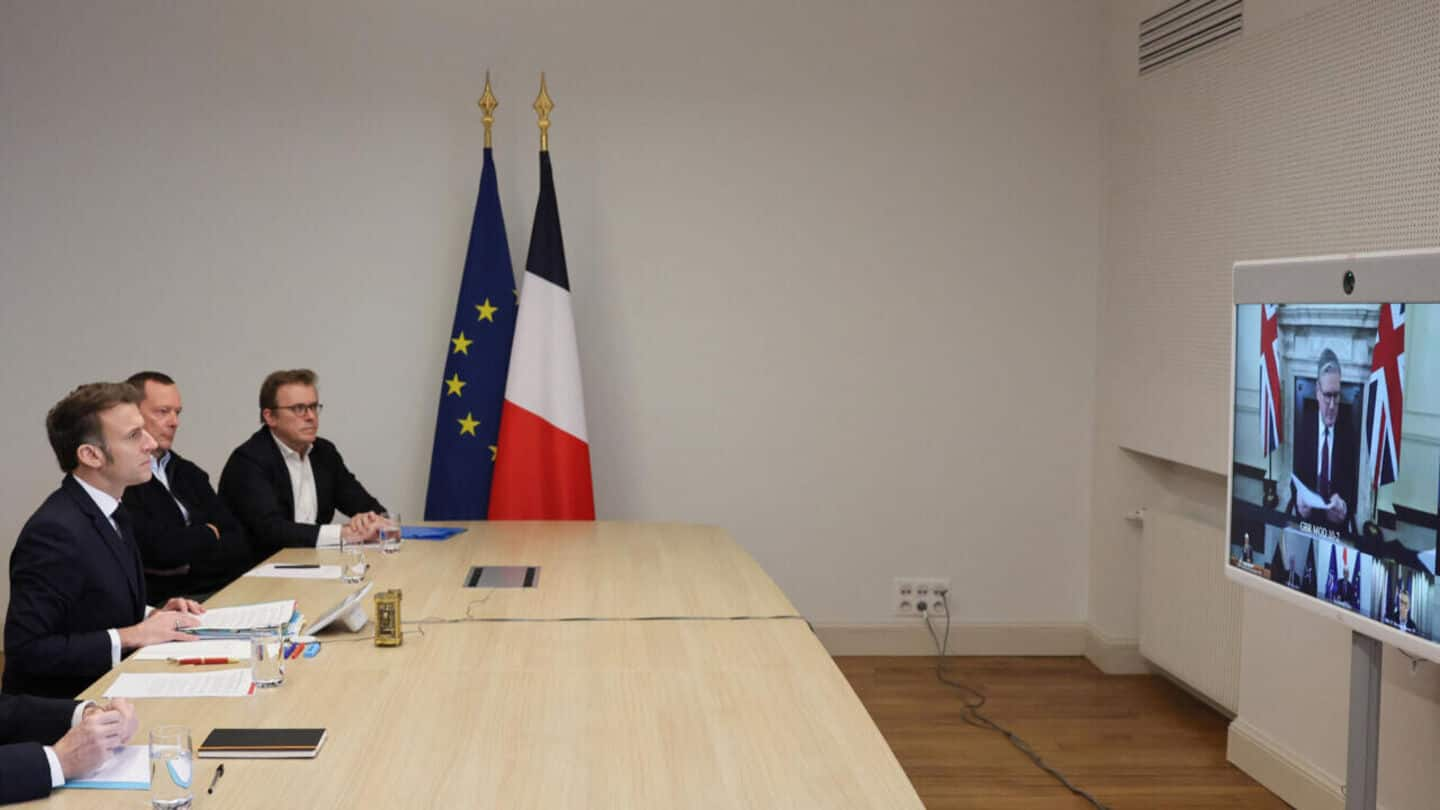
UK to host closed-door meeting for peacekeeping force in Ukraine
What's the story
The United Kingdom (UK) will host a closed-door meeting on Thursday with senior military officials from more than 20 countries, BBC reported. The talks will revolve around formulating plans for a proposed peacekeeping force for Ukraine. PM Sir Keir Starmer will join the meeting later in the day after his visit to Barrow, where he will lay the keel of one of Britain's next-generation nuclear-armed submarines.
Operational phase
Meeting aims to operationalize peacekeeping force
The upcoming meeting is a major step toward the operationalization of a Western-led peacekeeping force for Ukraine. Senior military officials from the "coalition of the willing," led by Britain and France, will meet at the UK's Permanent Joint Headquarters in Northwood. They will seek to discuss how this proposed peacekeeping initiative could be put into practice.
Obstacles
Challenges to proposed peacekeeping force
Yet, there's a long way to go. Despite progress, Russian President Vladimir Putin has reiterated that Moscow wouldn't tolerate any NATO member troops in Ukraine, no matter their role. The US, too, has been hesitant to give the much-needed air support that potential members of this peacekeeping force consider vital for its success. Nonetheless, Starmer remains determined to continue forward with what he refers to as the "operational phase" of preparation to protect any future Ukraine truce.
Support
France, UK plan Ukraine support force
Per Politico, Kyiv's allies, led by Starmer and France's Emmanuel Macron, want to keep the pressure on for a ceasefire while isolating Putin. The UK and France have taken the lead in committing to help supply the military power required to keep Russia at bay if a truce is reached. However, it is unclear what such a setup would look like. The options considered have varied from a 30,000-strong "reassurance force" to 100,000 troops, one former British army chief predicted.